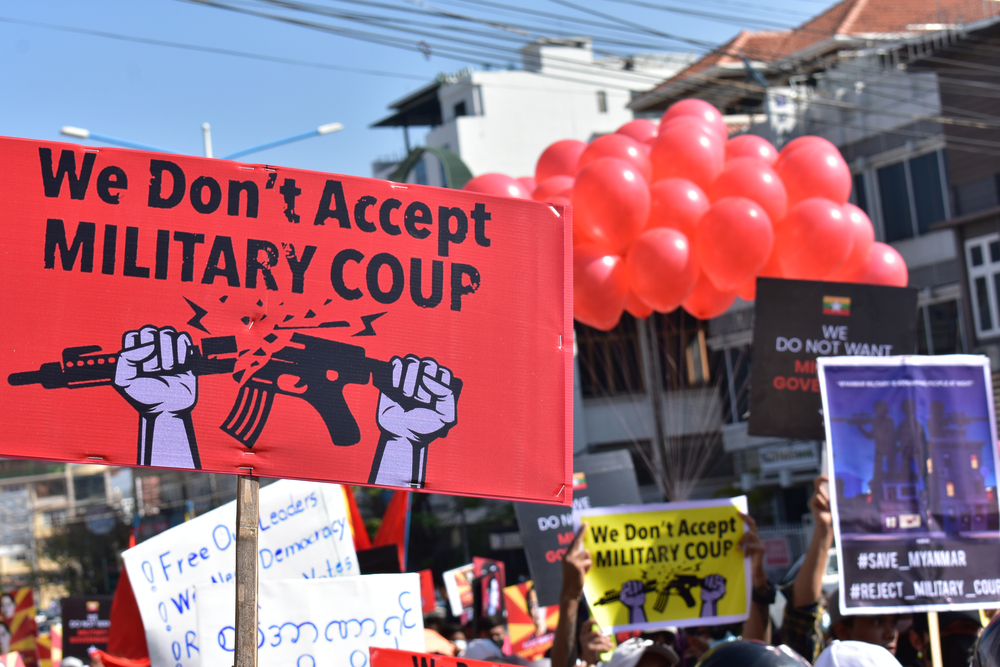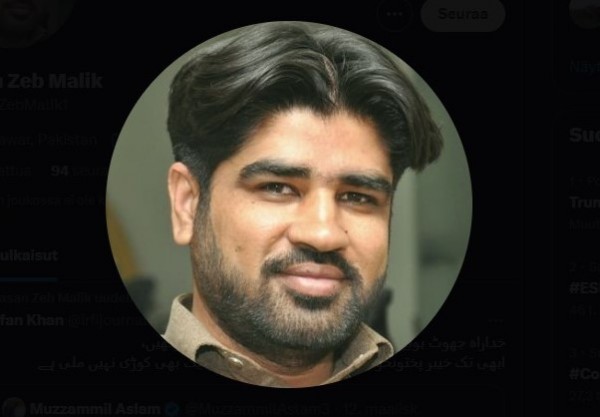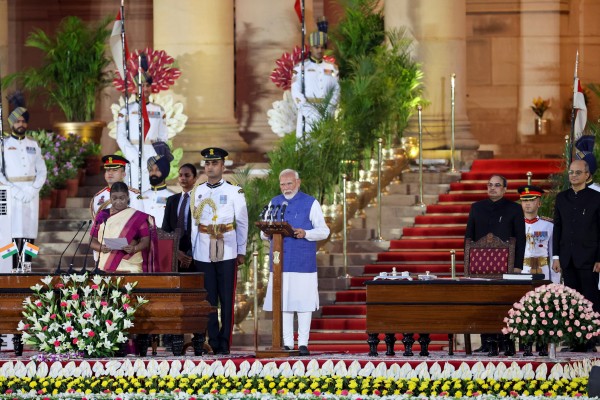The IPI global network calls on the international community to renew its support for press freedom in Myanmar. Two years since the military took power in a violent coup d’état, and despite extraordinary resilience and courage by the country’s media, the state of press freedom remains in peril. The international community must act with urgency to support the country’s remaining independent media outlets and pressure the military junta to end its deadly assault on journalists and democracy.
Following its democracy-crushing coup on February 1, 2021, the Myanmar military has carried out an unrelenting media crackdown to silence journalists and restrict access to information. The military junta has shuttered multiple independent outlets, repeatedly blocked access to the internet and mobile data, and restricted content on websites and social media platforms. Numerous journalists have been forced to work into exile, and those who remain in Myanmar risk their life and safety to report the news. Journalists face daily harassment and prosecution and face the risk of military searches and raids, enforced disappearances, arbitrary detention, torture, and imprisonment. Myanmar has become the third-worst jailer of journalists globally, according to the Committee to Protect Journalists (CPJ). According to the IPI Database of Killed Journalists, four journalists in Myanmar have been killed since February 2021, all suspectedly at the hands of the junta.
In a media briefing on February 7, 2023, organized by IPI, Soe Myint, the founding editor-in-chief and managing Director of Mizzima Media Group, said that despite the ongoing violence and limited international support, independent media in Myanmar will continue to figure out ways to operate and report what is occurring in Myanmar to the world. “Myanmar’s independent media has not only survived the coup, but we now see audience numbers far higher than before the coup, with a strong network of operations across the country”, said Myint, who underscored that the junta only controls part of the country’s territory. “Independent media and independent journalists are supposed to disappear, supposed to be killed, and supposed to stop… but two years after, we are able to do more than what we did even before the coup. This is resilience.”
The military junta’s reliance on economic and military support from China and Russia, including surveillance tech, is well-documented. But freelance journalist Thin Lei Win highlighted fears that European technology that was sold to the Myanmar Ministry of Home Affairs prior to the coup is now being deployed by the military junta for surveillance purposes. “That is where the international community can come in to make sure that countries that supposedly adhere to human rights standards actually do something about it and make sure that even if they have sold these technologies to the Myanmar government, they are no longer operable”, Win said. “It’s not just the states that we would normally associate these things with, but democratic states as well. When it comes to money and profit, they are equally culpable.”
“Two years after the military coup that abruptly derailed Myanmar’s democratic progress, the country’s media, operating both in the country and in exile, are continuing to deliver the news with incredible resilience”, IPI Deputy Director Scott Griffen said. “But they do so at immense risk as the military regime continues its violent crackdown, including on journalists and independent media. What we are witnessing is not just an attack on press freedom, but an attack on democracy. The international community must renew its commitment to Myanmar and protect and defend the courageous journalists who are risking their lives to report on the regime’s ongoing human rights abuses.”
The military coup on February 1, 2021 ended nearly a decade of economic and political reforms to introduce a civilian government after a half-century of domination by the military. “That ten year period of time showed Myanmar people what is possible”, Win said. “The younger generation who grew up during those ten years realized the possibilities [and] the future they could have… journalists saw the possibility and what it could be and they tasted it, no matter how flawed it was, and realized what they would be giving up. That is the big difference now.”



